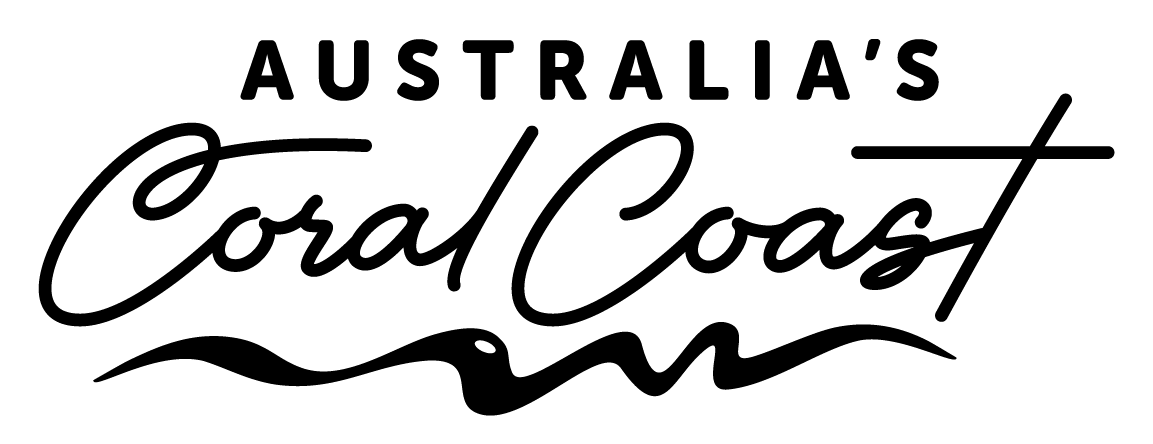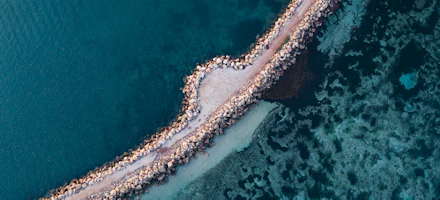
Eco-stays on Australia's Coral Coast
22 December 2022
Six of the best eco-accommodation providers on Australia's Coral Coast
Holiday with good conscience by choosing to stay somewhere conservation and nature regeneration are key.
On Australia’s Coral Coast, the terms ‘eco’ and ‘green’ hold weight. There’s a World Heritage-listed fringing reef to conserve, sacred Aboriginal sites to preserve, and rare native plants to continue to foster. None of this can be done without paying close attention to our relationship with and impact on the environment.
With tourism activities ramping up in the region, the concept of ecotourism is becoming increasingly important. But there’s more to it than just banning single-use plastics.
Ecotourism Australia — Australia’s leading certification body — defines ecotourism as:
"Tourism in a natural area that prioritises optimal resource use, leaves minimal impact on the environment, and offers interesting ways to learn about the environment with operators that use resources wisely, contribute to conserving the environment and help local communities."
Many stays on Australia’s Coral Coast are eco-friendly by Ecotourism Australia’s standards, and these are the ones that are doing it the best.

Dirk Hartog Island Eco Lodge
Holding an Advanced Ecotourism certificate from Ecotourism Australia, Homestead Bay’s Dirk Hartog Island Eco Lodge isn’t just a bunch of ‘green’ claims.
The shoreside bunking does the utmost to reduce its impact on the otherwise uninhabited island, with almost all of its daily operations relying on green and renewable energy sources. 92% of the lodge’s power comes from hybrid solar and wind-powered generators, and all water comes from a well via solar pumps and windmills. There’s also an on-island glass recycling scheme that sees all glass crushed into sand-sized particles and added to cement for upgrades around the lodge.
For comfort, each room and villa is air-conditioned, but leave it off and the windows open, and the afternoon sea breeze will do the job for you.

Karijini Eco Retreat
There are only 127 tourism operators in Australia who have reached ten consecutive years of Ecotourism Australia certification. Karijini Eco Retreat is one of them.
The lodge — 1500km north of Perth, on the edge of Karijini National Park’s Joffre Gorge — has more than proven its commitment to achieving best sustainable practice. Not only does the retreat run almost entirely on solar power, but water conservation is at the front and centre. Low-flow showerheads are in all the bathrooms, and a wastewater plant recycles the retreat’s greywater onto the surrounding vegetation.
Their operation gives back to the community, as well as the land on which it sits. A collaboration between the Parks and Wildlife Department and the 100% Aboriginal-owned Gumala Aboriginal Corporation, Karijini Eco Retreat serves the Banjima, Yinhawangka, and Nyiyaparli people of the Pilbara by contributing to the management of Karijini National Park’s environmental, cultural, and geographical values.

Milligan Island Eco Campsite
Camping at Milligan Island Eco Campsite, somewhere between Leeman and Green Head, is the epitome of ‘getting back to nature’.
Set back a short walk from Billygoat Bay, the 36 campsites might not have any power or state-of-the-art ablution blocks, but, what they lack in creature comforts, they more than make up for in wildlife experiences.
You can pitch a tent for the authentic camping experience or park up a self-sufficient RV or van for a little more comfort. There are long drop toilets and two gas barbecues available, but the rest is for you to bring should you wish.

Quobba Station
There’s something so very grounding about waking at Quobba Station to the sounds of the rolling surf and your tent flapping gently in the breeze. Spending a few nights on Tim and Sara Meecham’s sprawling property — with its astonishing 80km of coastline — also comes with a clear conscience, the station being certified with Ecotourism Australia since 2008.
The Meechams are proud of their pristine parcel of land on the southern tip of the Ningaloo Marine Park and encourage visitors to tread lightly, leaving as little trace of their being there as possible.
Located 80km north of Carnarvon, Quobba is entirely off-grid. Power to the homestead and the nearby accommodation is produced by solar on-site, but many of the coastal campsites at Red Bluff go entirely unpowered. Small generators are permitted, but for the most part, going without and immersing yourself in the serenity of the surrounding nature is encouraged.

Sal Salis Ningaloo Reef
You can’t see Sal Salis from Yardie Creek Road unless you’re on the lookout for it. It’s an intentional move by the glamping providers, opting for beige-coloured safari tents, so they sit inconspicuously among the scrub-covered dunes of Cape Range National Park.
Everything about the construction of the Ningaloo Reef-front destination has been considered with the local landscapes, flora, and fauna in mind, leaving the smallest footprint possible. The 15 tents and connecting boardwalks sit on short stilts above the dunes to protect the natural ecosystem. And, instead of air conditioning — which would draw too much power from the on-site solar grid — the tents are positioned to utilise the brisk afternoon breeze.
The aim is to provide a comfortable and welcoming stay for glamping guests while paying due respects as guests of the land. Sal Salis shares 5% of its turnover with the Department of Biodiversity, Conservation and Attractions to further show its dedication to conserving the national park within which they sit.

Wooleen Station
Wooleen Station owners, David and Frances Pollock, are on a quest to find a sustainable solution to land generation. Their long-term goal is to preserve the unique ecology of the Mulga shrublands on which their 380,000-acre pastoral lease sits and see it return to a flourishing and ecologically stable landscape.
In 2007, they made a radical decision to remove all livestock from the station entirely. Over the four years it was livestock free, the land showed many positive signs of regeneration, but it wasn’t the most financially sustainable option for the couple. Now, they’re toeing the line of balance between cattle-grazing time and cattle-free time, supplementing the funding of their cause with an ‘adopt an acre’ program.
You don’t have to sign up as an adoptee to stay at the station, though. Anyone is welcome to stay at the unpowered campsites on the edge of heritage-listed Wooleen Lake, guesthouse, or Homestead from the 1st April - 30th October each year.




























